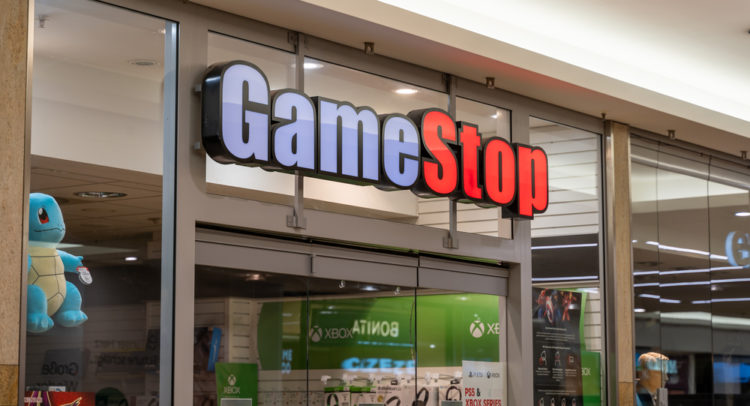GameStop (GME) is a global videogame retailer with headquarters in Texas. It sells games, consoles, and related accessories. GameStop is also seeking business opportunities in the NFT (non-fungible token) space.
With this in mind, we used TipRanks to take a look at the latest financial performance and risk factors for GameStop. (See Top Smart Score Stocks on TipRanks)
Q3 Financial Results
GameStop reported revenue of $1.3 billion and a loss per share of $1.39 for its Fiscal 2021 third-quarter ended October 30. Revenue came in at $1 billion with a reported loss per share of $0.29 in the same quarter last year.
GameStop ended Q3 with $1.4 billion in cash. The company recently secured a $500 million asset-based loan to boost its liquidity. (See GameStop stock charts on TipRanks).
Risk Factors
According to the new TipRanks Risk Factors tool, GameStop’s main risk category is Finance and Corporate, representing 26% of the total 46 risks identified for the stock. The company recently updated its profile with one new risk factor under the Tech and Innovation category, which accounts for 7% of its total risks.
GameStop tells investors that it is exploring opportunities in areas such as blockchain, Web 3.0, and NFTs (non-fungible tokens). However, it cautions that regulatory uncertainty in these new technology areas may hinder its ability to develop a competitive product. It warns that if unsuccessful, it may incur unexpected costs and suffer reputational damage as well. Even if it succeeds in developing a blockchain, Web 3.0, or NFT product, GameStop cautions that the results may fall short of its expectations for additional revenue.
In an updated Ability to Sell risk factor, GameStop reminds investors that competitive pressure may force it to reduce its price or boost spending to maintain customers. It cautions that such action may increase its losses. GameStop mentions that it competes with companies that have more experience or greater financial resources. It also says that its rivals that remained open during the COVID-19 pandemic may create more competition for supplies.
The Tech and Innovation risk factor’s sector average is 11% compared to GameStop’s 7%. The Ability to Sell risk factor’s sector average is 17% compared to GameStop’s 24%. GameStop’s shares have gained about 727% year-to-date.

Analysts’ Take
Following GameStop’s Q3 earnings report, Wedbush analyst Michael Pachter maintained a Sell rating on GameStop stock and lowered the price target to $45 from $50. Pachter’s reduced price target suggests 71.11% downside potential. The analyst noted that GameStop’s earnings results were mixed as revenue beat expectations, but EPS missed the target.
Consensus among analysts is a Moderate Sell based on 1 Hold and 1 Sell. The average GameStop price target is $45 per share.

Related News:
fuboTV Signs Deal to Stream Professional Fighters League Challenger Series
Stryker Rewards Shareholders with 10.3% Dividend Hike
lululemon Q3 Results Top Estimates; Street Says Buy









